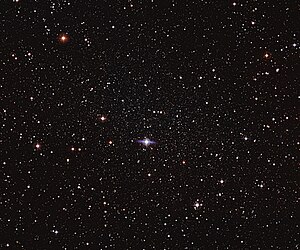4-플루오로메틸페니드산염
4-Fluoromethylphenidate | |
| 법적현황 | |
|---|---|
| 법적현황 | |
| 식별자 | |
| |
| CAS 번호 | |
| 펍켐 CID | |
| 켐스파이더 | |
| 화학 및 물리적 데이터 | |
| 공식 | C14H18FNO2 |
| 어금질량 | 251.1987 g·messages−1 |
| 3D 모델(JSmol) | |
| 녹는점 | 222[1].0°C(431.6°F) |
| |
| |
4-Fluoromethylphenidate(일명 4-FMPH 및 4F-MPH)는 각성제로, 밀접하게 연관된 메틸페니드산보다 더 높은 효력 도파민 재흡수 억제제 역할을 한다.[2][3][4]
4-Fluoromethylphenidate 더(±)-threo-methylphenidate(TMP)그들의anti-cocaine 약으로서 우리의 잠재적인 평가 때문에 다른 유사체까지 함께 살고 있다. 4F-MPH, 코카인의 대용품으로 효능에 0.26개(0.18–0.36)의 ED50 mg/kg을 가진 것으로 보도되고 333의 비역가를 methylphenidate에 비해 연구되었다. purose. 이것은 도파민 전달체에 대한 결합 강도와 도파민 재흡수 억제제로서의 활성도에 기초한다.이론적으로, 이것은 코카인의 효과의 일부를 차단할 것이며, 중독성이 없다.[5]이것은 도파민 대 노레피네프린 선택성비로 잘못 해석되어 왔다.
또 다른 연구에서는 메틸페니드산염의 티로이머에서 전자를 빼는 대체물을 가진 메타 및 파라 대체 화합물이 결합 효력이 증가하는 경향이 있다는 것을 발견했다.플루오린, 염소, 브롬, 메틸 그룹을 함유한 화합물은 메틸페니산염과 밀접하게 연관된 화합물 4F-EPH보다 더 강력한 것으로 보고되었다.3 4F-MPH는 35.0 ± 3.0 바인딩 [H]WIN 35428 바인딩 및 3[H]도파민 142 ± 2.0(2) 값을 가지는 것으로 보고되었다.[6]
법적현황
4-Fluoromethylphenidate는 미국 앨라배마 주(州)에 있는 Schedule I 제어 물질이다.[7]2017년 5월 5일 현재 4플루오메틸페니데이트(fluoromethylphenidate)는 캐나다에서 통제되는 물질이다.[8]
참고 항목
참조
- ^ "The Drug Enforcement Administration's Special Testing and Research Laboratory Monograph" (PDF). February 2017.
- ^ Davies HM, Hopper DW, Hansen T, Liu Q, Childers SR (April 2004). "Synthesis of methylphenidate analogues and their binding affinities at dopamine and serotonin transport sites". Bioorganic & Medicinal Chemistry Letters. 14 (7): 1799–802. doi:10.1016/j.bmcl.2003.12.097. PMID 15026075.
- ^ Misra M, Shi Q, Ye X, Gruszecka-Kowalik E, Bu W, Liu Z, et al. (October 2010). "Quantitative structure-activity relationship studies of threo-methylphenidate analogs". Bioorganic & Medicinal Chemistry. 18 (20): 7221–38. doi:10.1016/j.bmc.2010.08.034. PMID 20846865.
- ^ Singh S (March 2000). "Chemistry, design, and structure-activity relationship of cocaine antagonists". Chemical Reviews. 100 (3): 925–1024. doi:10.1021/cr9700538. PMID 11749256.
- ^ Schweri MM, Deutsch HM, Massey AT, Holtzman SG (May 2002). "Biochemical and behavioral characterization of novel methylphenidate analogs". The Journal of Pharmacology and Experimental Therapeutics. 301 (2): 527–35. doi:10.1124/jpet.301.2.527. PMID 11961053.
- ^ Deutsch HM, Shi Q, Gruszecka-Kowalik E, Schweri MM (March 1996). "Synthesis and pharmacology of potential cocaine antagonists. 2. Structure-activity relationship studies of aromatic ring-substituted methylphenidate analogs". Journal of Medicinal Chemistry. 39 (6): 1201–9. doi:10.1021/jm950697c. PMID 8632426.
- ^ "Alabama Senate Bill 333 - Controlled substances, Schedule I, additional synthetic controlled substances and analogue substances included in, trafficking in controlled substance analogues, requisite weight increased, Secs. 13A-12-231, 20-2-23 am'd". March 2014. Retrieved 28 September 2015.
- ^ "Regulations Amending the Food and Drug Regulations (Part G — Methylphenidate)". Health Canada. Government of Canada. April 5, 2017.


